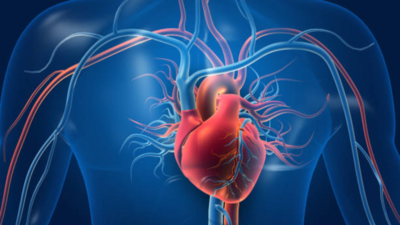One of India’s foremost killers strikes without forewarning. The untimely heart attack takes the lives of many without presenting any unmistakable symptoms in the wake of medical developments. But what if there were a simple blood test that could warn of a heart attack years before it would take place? The recent advances in cardiovascular diagnostics are trying to fulfil this dream.
The power of predictive biomarkers
“Scientists”, as Dumont et al. have demonstrated, “have found certain proteins and enzymes and inflammatory markers in blood which, if they appeared in higher than normal concentration, indicated that the person was at risk of cardiovascular disease long before any clinical presentation.” High-sensitivity C-reactive protein (hs-CRP) is one such marker. It signifies inflammation in the vessels of the heart-a silent trigger in most heart attacks. A protein blood test (genetic lipo/protein analysis) can predict heart attack risk by detecting elevated lipoprotein(a) levels linked to inherited cardiovascular disease.Troponin comes next on this list of probable biomarkers. Troponin is primarily used to identify heart attacks. When troponin levels are elevated only a small amount, it has called to attention heart muscle stress or damage in the form of an early warning, years before. The other factor that has risen into prominence as a strong factor for early onset heart disease, especially in South Asians, is lipoprotein(a), or Lp(a), a genetic form of cholesterol.
An unprecedented prospect for cardiovascular health
In India, where CVDs affect younger populations, it is very much important to go in for early intervention. With urban lifestyles, increasing sedentarism, and the rising stress level, the younger lot itself is under threat. But for most routine checks, no one does anything else beyond reading cholesterol and blood pressure.With a little bit more of a proactive approach involving cardiac biomarkers testing, risk individuals could be identified earlier, so that they could then eliminate risk through lifestyle modification, early treatment with medication, or further diagnostic evaluation if warranted. This testing can be simple, non-fasting blood tests , no guruji, no stress test, no invasive procedure.
Technology meets precision medicine
The AI biomarker data integration is giving the jewel more shine. Advanced AI modeling techniques can now analyze the patient profile, which could include blood test results, genetic data, and lifestyle risk factors, and arrive at an individualized estimate of one’s 10-year or even lifetime risk of developing heart disease. This individualized prediction and risk stratification allows for targeted prevention, rather than generic public-health-based preventions.
A wake-up call for routine screening
Despite these breakthroughs, public awareness and access remain barriers. Don’t wait and wait until you suddenly have a heart attack and need an operation. We must shift our mindset from “reactive treatment” to “proactive prevention.” Including advanced cardiac biomarkers in annual health checks could be the key to reducing India’s heart attack toll.Heart attacks don’t just happen overnight, the silent damage increases over years. A basic blood check, administered at the right time, might provide a life-saving early alert. While science is arming us with tools, it’s up to us as individuals, as doctors, as policymakers to act now before it’s too late. Sameer Bhati Public Health Expert

